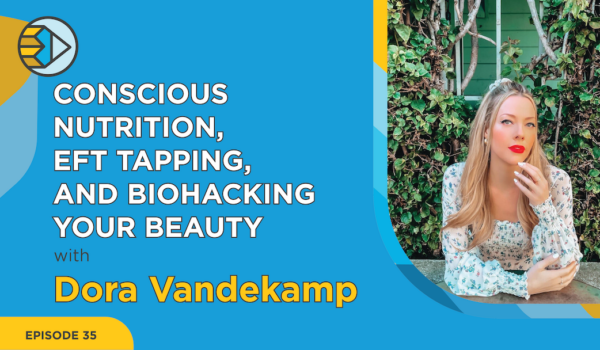
EP 47: How to Write a Structured Essay Outline
Creating an outline for your essay is just as important as writing a strong thesis statement. It gives structure to your essay, helps with time management, and helps you to identify gaps in your argument. Join Cath Anne on Episode 47 as she walks you through the outline writing process.
Looking for study tips, help with essay writing, or advice on how to be a better student? Welcome to The Homework Help Show, a weekly show where we teach, assist, and offer valuable insights for student life. From study hacks to writing tips, discussions about student mental health to step-by-step guides on academic writing and how to write a resume, we’ve got you covered. Want your questions answered? Write them below or join the conversation on social media using the hashtag #askHHG
TRANSCRIPT:
Cath Anne: [00:00:00] Hi guys and welcome back to our channel. My name is Cath Anne and this is episode 47 of The Homework Help Show hosted by Homework Help Global. Here on the show we provide you with valuable content for your academic and student life. Let’s jump in.
Cath Anne: [00:00:22] A few weeks ago on Episode 43 we discussed the most important part of your essay which is the thesis statement. Today we are going to discuss something equally important: the essay outline. So you have written your thesis statement and you are ready to write your essay, right? Wrong. Just because you’ve written your thesis statement does not mean you can just jump in to writing your essay. Here’s why. You haven’t written an essay outline. Writing an essay outline will help you to see the structure of your essay and of your main points and sub points clearly. Outlining will also help you to check the logic and completeness of what you are going to say. It will reveal any gaps, any repetition, or illogical steps in the development of your essay. Writing an essay outline will also help you to manage your time more effectively. And who can deal with more time to work on an essay? You can break down the outline into manageable sections and then allot a specific time to work on each section. Remember the introduction can be very time consuming.
Cath Anne: [00:01:31] Try to leave the introduction until the end because it’ll be easier to write once you have a sense of what your essay is going to look like after writing the first draft. As you develop your outline keep in mind the length of the assignment. How many words or pages do you have to produce for this writing assignment? Although you have many great ideas in your outline remember you have a limited amount of words or pages to work with and you may have to do some prioritization in terms of what ideas you want to include. For example if you’ve been assigned 1000 word essay and you hope to make five points about a topic that only leaves you with 150 words for each topic. Ask yourself are hundred and fifty words enough to clearly get across what you’re trying to argue and discuss all the important points? Typically, your arguments should be equally developed and equally relevant to the topic. You should feel that you can present balanced arguments with the ratio you have worked out and if you are unable to write enough in 150 words you may want to reconsider what you’re including in your outline and perhaps remove one of the points from your outline. Typically your arguments should be equally developed and equally relevant to the topic at hand. If you do not feel you can present your information clearly within the ratio you have developed. You may want to omit that one from your outline and consider only limiting yourself to 4 potential arguments.
Cath Anne: [00:03:12] So what do you need to write your outline? You need a topic, you need to have some sense of your thesis statement and you also need some information regarding your persuasive argument and the details that you will include to back up your topic and your thesis statement. One of the most popular types of essays in university is the persuasive essay. A persuasive essay is used to convince the reader of a specific topic or specific point. Your persuasive essay could be based on anything about which you have an opinion or that you can make a clear argument about. Because this is such a popular type of essay, let’s go over a brief sample outline of the persuasive essay. Begin by capturing this following information in point form on your outline template. First you will include your introduction. This will include your topic and the persuasive argument that you’re trying to make. This means that your thesis statement will be within your introductory paragraph and it usually ends up in the last sentence. Next you’ll want to include your first body paragraph. Here you’ll introduce your first persuasive argument and then populate the rest of the paragraph with details that back up your argument. In body paragraph 2, you’re going to do the same thing except you’ll be introducing a new persuasive argument. Use two to three details to flesh out the paragraph and to support the argument that you’re making in your second paragraph. Finally you’ll want to have a conclusion. Conclude the essay with a summary of the thesis and persuasive arguments. End the essay with a conclusion and a sentence to wrap everything up and to tie into your thesis statement.
Cath Anne: [00:05:02] Now how can you tell if your essay outline is any good? A test of a good essay outline is to read it to someone who is unfamiliar with the topic. Actually sit beside someone and read your essay outline out loud. If you follow what you’re saying and there’s no confusion on your end and the audience doesn’t have to ask for much clarification, then you are probably on the right track and you can begin writing your essay. If your audience does need clarification then this may tell you that you have to go back and rework your outline. Perhaps your arguments are ambiguous or the sequence of the essay outlined does not make sense. In this case, go back and revisit your outline and make sure all of the pieces come together. Remember although you are very familiar with the topic you want to maintain a sense that you are writing for someone who isn’t as familiar with the topic as you are. This is called the general audience. Do not assume that people are familiar with the topic and make sure you are informing them every step of the way.
Cath Anne: [00:06:12] Most analytical, interpretive and persuasive essays tend to follow the same basic pattern. So in other words the pattern that we just discussed can be used in any of these types of essays.
Cath Anne: [00:06:23] I would also recommend looking for a physical essay template before you begin your outline. This can give you a visual guide of how to write your mind.
Cath Anne: [00:06:33] In sum, began writing her essay outline by following these tips. First think about your thesis statement and the main parts of your essay. Do not begin writing your essay without an outline. Use the outline to guide you through the essay writing process. Use an essay outline template. Begin with an introduction, thesis statement and two body paragraphs including details to flush out these body paragraphs. You’ll also want to include a concluding sentence. In terms of your essay you do not need to begin by writing an introduction. In some cases it might be better to wait until the end and write the introduction. Keep the thesis in mind throughout the process of writing your outline. And one final tip: if you are writing an essay for an exam flip your exam over and use the back of blank sheet to develop an outline for yourself. Just because you’re writing an essay exam does not mean that you can’t also write an outline.
Cath Anne: [00:07:38] Okay that’s it for me this week guys. I hope this episode was of benefit. If you have any questions please as always jump into the comments below. We always love to hear from you. If you want to connect with us on any of our social media check out the description box below, all of our platforms are linked there for you to connect with us. If you liked to this video please give it a thumbs up and subscribe to our channel. Thanks so much for tuning in. Talk soon and take care.
Share:

